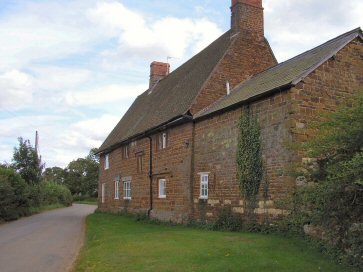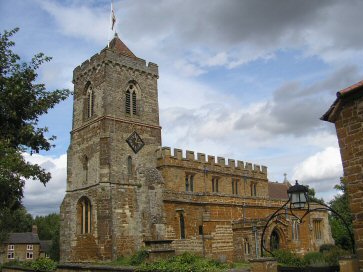
Woodend
Northamptonshire
The 1848 entry for Woodend in the Topographical Dictionary of England describes the village as 'a hamlet in the Parish of Blakesley, union of Towcester, hundred of Green's-Norton, Southern Division of the county of Northamptonshire, five and a half miles West by North from Towcester and with 272 inhabitants and 1659 acres'. Little has altered and the village remains much as it must have been when Belgium was invaded and the 'Old Contemptibles' set sail in 1914 to repel the Kaiser's Army.

Woodend is composed of farms, cottages, an old chapel (now a house) next to a small cemetery and shares its Parish Church with the neighbouring and somewhat larger village of Blakesley. The 13th Century Parish Church of St Mary in the village of Blakesley is built in the early English style of red sandstone and limestone and is the burial place of one Matthew Swettenham Esquire, Bearer of the Bow to King Henry IV.

The Church has a marble plaque to commemorate the three men of the Parish who died in the Great War of 1914 to 1918, all of them being from Blakesley. The Parish of Blakesly cum Woodend provided a total of 98 men to the Colours and their names are recorded on the Roll of Honour that still hangs in St Mary's Church. All of those who went from Woodend returned safely home making it one of two 'Thankful Villages' in the great County of Northamptonshire.
As a footnote it should be noted that Lance Corporal Arthur Stanley Spice T/1068 5th Battalion, The Buffs (East Kent Regiment) died of wounds on 19th September 1916 aged 23. He was born in Woodend, Northamptonshire the son of Arthur and Louise Spice but enlisted in Sutton Valence, Kent to where his parents had moved. He is buried in Sutton Valence, Kent in St Mary's Churchyard.
Text and Photos: Rod Morris